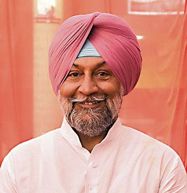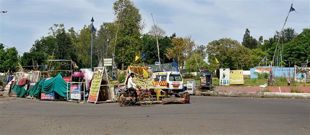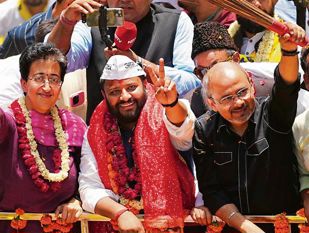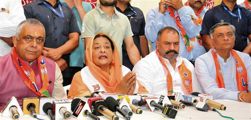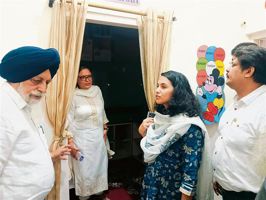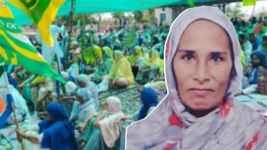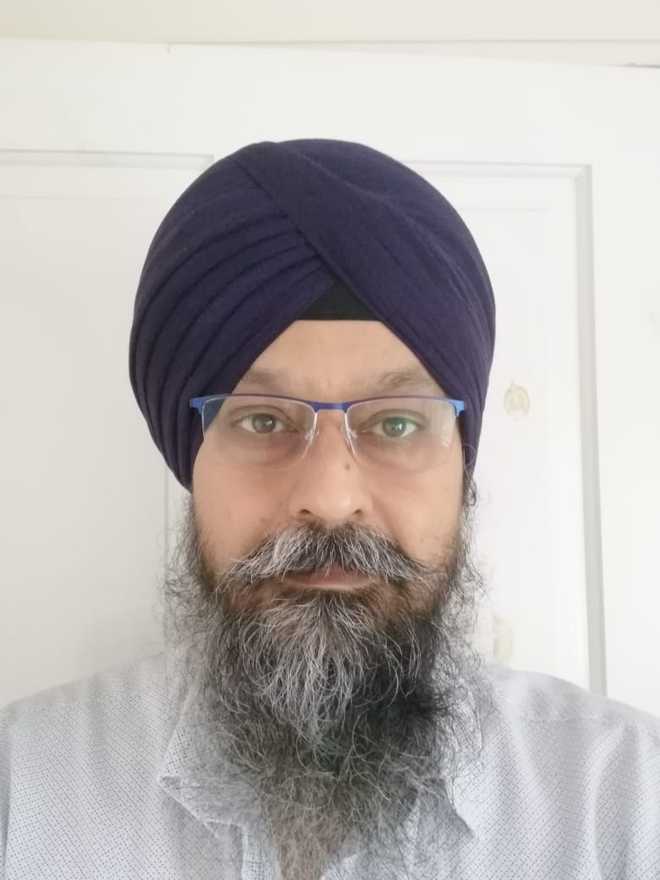
Dr Indrajeet, a speaker at webinar
Tribune News Service
Amritsar, August 24
Majha House hosted eminent panel of speakers, including filmmaker-author Ghazala Wahab, Natasha Badhwar, researcher Dr Indrajeet Singh and author Dr Ori Z Soltes to talk about issues faced by minorities in the backdrop of India’s 75th Independence day celebrations. Discussing the anxieties and hopes of Muslims and Jews in India, and the Hindus and Sikhs in Afghanistan post the Taliban reign there, the speakers talked about their recent experiences and perspective on the subject.
The recent Afghanistan crisis was discussed as UK-based researcher Dr Indrajeet Singh elaborated on the history of the war-torn nation.
He talked about the present scenario and what the future holds for the Hindus and Sikhs in Afghanistan. “History is witness to the fact that in spite of all the wars and violence and internal strife, there were many leaders who were visionaries and sympathetic people. Dr Najeebullah noted that the safety of Hindus and Sikhs was in jeopardy and he ensured that speedy visas were granted to those wanting to leave the country,” Dr Indrajeet explained.
He said even earlier the Taliban had sought to differentiate Hindus and Sikhs from the local people by asking them to wear some yellow cloth to identify them or to hoist yellow flags on their houses. “This diktat was negotiated by the Hindus and Sikhs as they were paying Jaziya to them and they had a saying in matters. This is how the minorities have always lived - by negotiating,” he said. He lauded the role of many film-makers, like Afghan-based Prit Pal Singh, who made documentaries on how they were living in Afghanistan and these were eye-openers for everyone. As resolutions to the current violent situation, Dr Indrajeet said, “The problem of the Durand line should be addressed; muslim scholars should be consulted for women’s rights and education; and ideally a party should consist of liberal people too, who can highlight the issues of the minorities; and therein lies hope.”
Ghazala Wahab, while talking about her book, Born a Muslim, said that she had always been aware of the difference between being a muslim in India. “The first time that we, as a Muslim family, became conscious of our difference was during the infamous Rath Yatra and living in Agra did not make things easy for us. One could feel the dynamics of the crowd shifting and changing into a mob, one that was targeting only Muslims. And if we escaped unharmed only because one of the Hindu guys knew our family,” said Ghazala. She was in conversation with Natasha Badhwar, Ghazala said, “Even in the writing of the Constitution one finds that the liberal policies therein have been slowly, surreptitiously changed during later readings and interpretations.”
In another session, Dr Ori Z Soltes, renowned academician and author, talked about his book ‘Growing up Jewish in India’. “The book offers an historical account of the primary Jewish communities of India, their synagogues, and unique Indian Jewish customs. And it should be noted that as of today there are only about 5,000 Jews residing in India,” said Soltes. He also drew several parallels between Judaism and Hinduism illustrating his talk with traditional religious paintings.
Join Whatsapp Channel of The Tribune for latest updates.






















